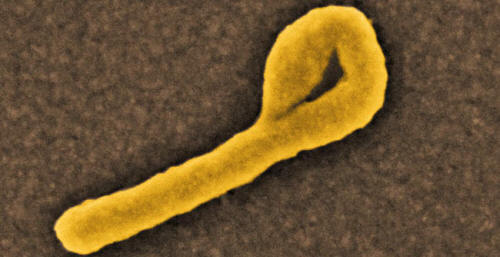|
Only if you assume semi-literacy is virtuous, and that imagination lies in the name of the manipulative. The combination of both Ebola and terrorism are the evil twins of the same security dilemma.
It is manufactured. It is a confection.
And it is, at the end, worthless in what it actually suggests. The
effects of it are, however, dangerous. They suggest that politicians can be
skimpy with the evidence yet credible in the vote.
Individuals such as Jim Carafano, vice president of the Kathryn and Shelby Cullom Davis Institute for National Security and Foreign Policy at the Heritage Foundation, continue insisting on the need for presidential administrations to form a "national bioterrorism watch system".
While the language here seems to draw
distinctions - that those suffering Ebola pose one set of problems,
while the use of a bioterrorist agent is another - the ease of
placing the two side by side is virtually irresistible.
It is not sufficient that there are
terrorists with a low probability of waging actual attacks on home
soil, be they returning citizens, or simply foreign fighters wishing
to stir up a good deal of fuss. Throwing in the disease component is
hard to resist.
This exotic lunacy was also appealing to Republican Rep. Joe Wilson of South Carolina, who even suggested that Hamas fighters might be daft enough to infect themselves with Ebola and make a journey to freedom land in order to engage in acts of infectious mayhem.
Their venue of safe passage would be
from the South, where the evils of an open border with Mexico risk
allowing a dangerous pathogen into the country. Now that, dear
readers, is exactly what such figures think about Mexico.
Those with such a creed are bound to get up to any old and lethal mischief.
As to whether the idea of using such an agent would be feasible is quite something else.
Weaponizing such a pathogen has proven to be a formidable challenge. Such groups as the Aum Shinrikyo cult attempted to collect the virus while ostensibly on a medical mission in the Democratic Republic of the Congo was a failure of some magnitude.
As Dina Fine Maron argues, the,
Even the FBIís James Corney suggests
that evidence of Islamic Stateís involvement in an Ebola program is
highly dubious.
Be it small pox, botulism, and
tularemia, these have found their way into inventories and
laboratories with disturbing normality.
The 'President' did not do himself any favors by on the one hand denying there was a grave threat, and then proceeding to appoint an "Ebola Czar" by the name of Ron Klain.
This was classic bureaucracy in action -
we create positions of unimportance to supposedly fight the
unimportant, while admitting their gravity in creating such
positions.
This has always been the federal, and one might even say federalist headache: what is done in the White House and Washington often stays there.
The response by states can
often have a foreign sense to them. The US Centers for Disease and
Control and Prevention has regarded such quarantine measures as
unnecessary, but the CDCís attempt to defuse the situation has not
worked.
William Schaffner of Vanderbilt University, a long time student of infectious diseases, sees this as a matter of information, in so far as the more one gets, the less anxious one is bound to feel.
Schaffner is unduly wedded to the rather unfashionable belief that knowledge somehow enlightens. But it is not knowledge that is driving this debate, but supposition.
Facts are the enemy, and they continue
to play the roles of silent, some might even say murdered witnesses.
|

